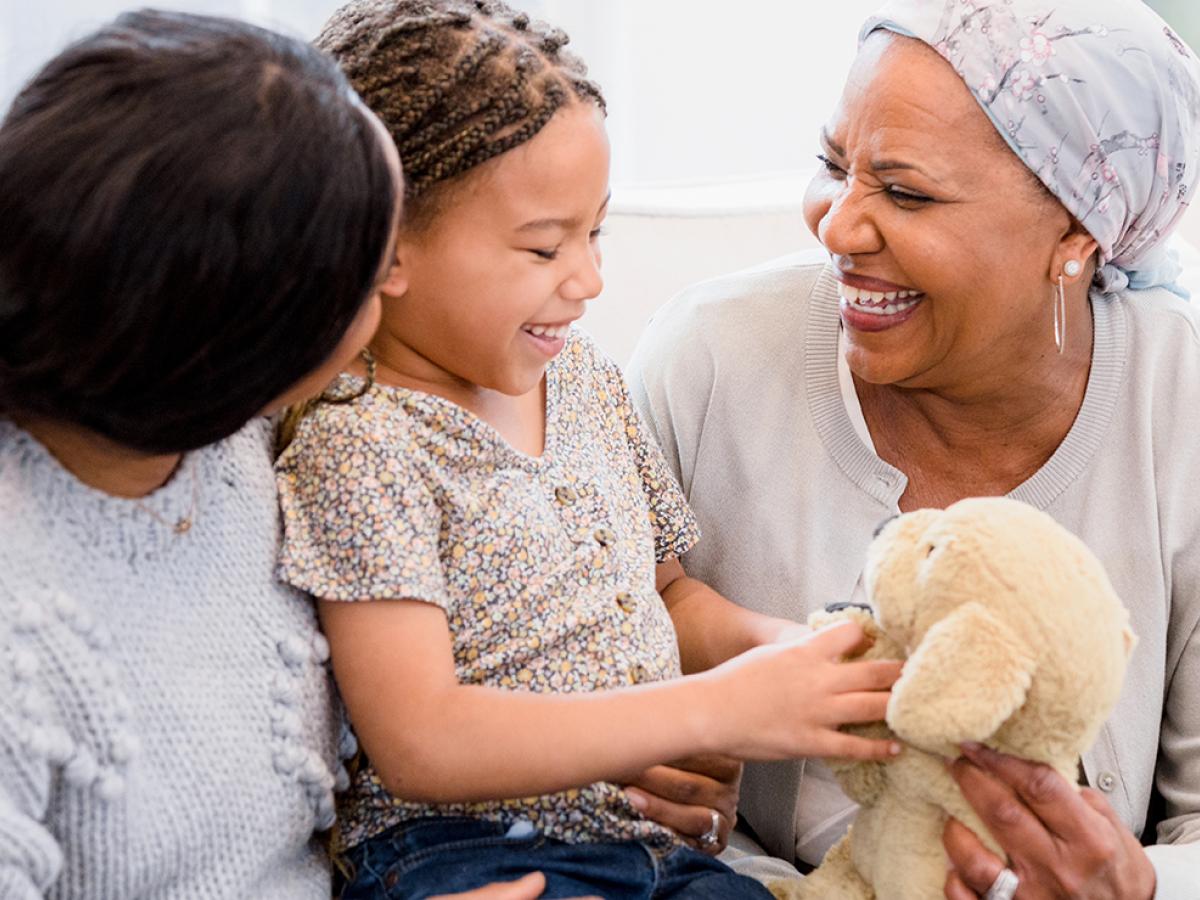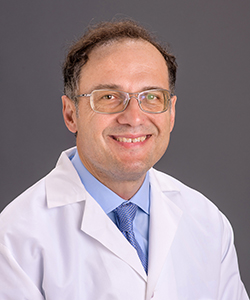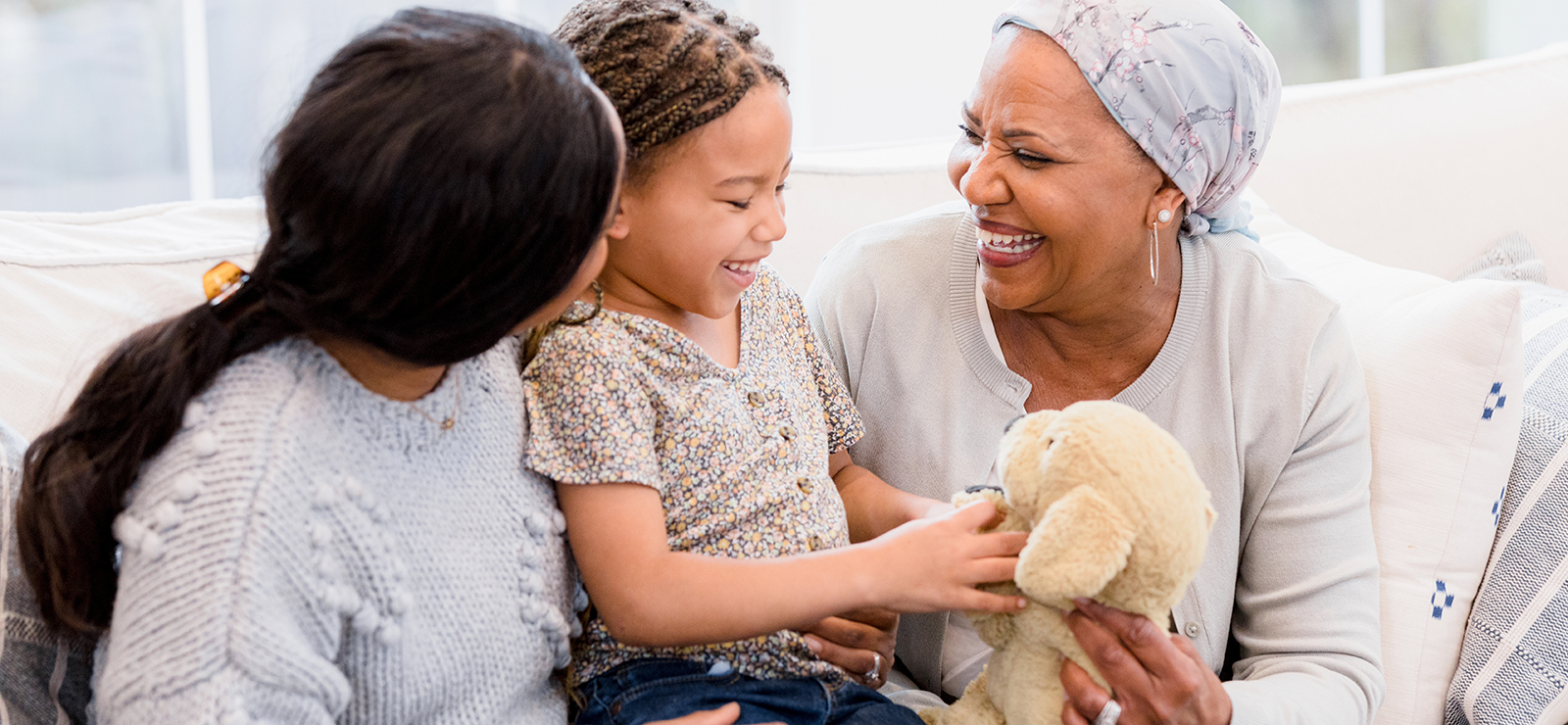September 25, 2023

Oftentimes when we think of genetics, we think of who gets which looks from who — dad’s nose, mom’s eyes, grandpa’s build. But looks aren’t the only thing families pass down. Inherited genetic changes can lead to multiple health conditions, including as many as 10% of all cancers. And if you have a family member diagnosed with cancer, you might wonder what it means for your long-term health.

It’s important not to panic, says former MU Health Care breast cancer oncologist Dr. Christos Papageorgiou. But you also shouldn’t sit back and do nothing because this new element in your family health history can change your cancer risk.
To help you define your next steps, Dr. Papageorgiou shares what you need to know when a family member develops cancer:
Understanding Cancer and Genetics
All cancer occurs because of changes to your genes — the parts of your DNA that determine your traits and control how your body functions. There are three reasons cancer-related genetic changes (also called mutations or variants) happen:
- Carcinogens in our environment, such as tobacco, asbestos, ultraviolet rays and certain viruses, change DNA
- Random DNA changes can occur when cells multiply
- You inherited a genetic mutation from one of your parents
“There are certain red flags that point toward hereditary cancer,” Dr. Papageorgiou says. “One is age. The younger the person is diagnosed with cancer, the higher the probability of a hereditary component. Another is family history — when first-degree relatives (sibling, parent or child) are diagnosed with the same cancer.”
Preventive Measures to Take if a Family Member Gets Cancer
Cancer itself cannot be passed down from generation to generation. But you can inherit a genetic change that causes or increases the risk of cancer. The good news is that inheriting a gene abnormality from your parents doesn’t automatically mean you’ll develop that cancer, but it does increase your risk.
To better understand that risk, Dr. Papageorgiou recommends taking these five steps:
1. Talk to your primary care provider
Your primary care provider (PCP) knows you best and should have a detailed report of your family history. Make sure you’ve disclosed all your family history — including cancer and chronic disease that occurs beyond a first-degree relative. With information about both your personal and family health history, your PCP can provide an initial risk assessment.
“Any family history of cancer increases your risk,” Dr. Papageorgiou says. “But some factors increase it more than others. That’s why every time there is a change in your family’s health, you need to report it to your health care provider immediately. It may require recalculating your risk.”
2. Make sure your cancer screenings are up to date
There are screening options for some cancers that are known to have a hereditary component, including:
- Breast cancer: Mammograms create images of your breast tissue to look for abnormalities.
- Cervical cancer: Pap and human papillomavirus (HPV) tests screen for cervical cancer.
- Colon cancer: A colonoscopy examines the large intestine and rectum for changes.
- Lung cancer: Low-dose computed tomography (CT) scans are X-ray images of your lungs.
- Prostate cancer: PCPs and urologists can order a prostate-specific antigen (PSA) blood test and perform a digital rectal exam.
- Skin cancer: Dermatologists perform whole-body skin exams to look for signs of skin cancer.
Following cancer screening guidelines is an easy way to identify signs of cancer early. “Whether you have an inherited genetic change or not, screening is the best way to identify cancer early, when treatment may be more successful,” Dr. Papageorgiou says.
3. Find a genetic clinic that specializes in that cancer type
Your PCP may identify whether you have a low, high or average risk of developing cancer. But genetic counselors use special risk calculators to provide a personalized risk score.
“Genetic counselors build your family health tree in detail and consider your personal risk. For breast cancer, personal risk factors might be having dense breasts or the number of biopsies you’ve had,” Dr. Papageorgiou says. “Then they use various mathematical formulas and models to calculate your lifetime risk of developing that cancer.”
Once you have a risk score, your counselor can explain what it means and talk to you about possible next steps. Your risk score may impact how you approach lifestyle choices and screening. It also indicates whether you’re a candidate for genetic testing to see if you’ve inherited a genetic change.
4. Consider genetic testing
If your calculated risk is high and your loved one’s cancer has a known genetic link, you may have the option to find out whether you have a genetic mutation associated with cancer. There are several ways experts can get what they need to perform genetic testing, including:
- Blood sample
- Cells taken from inside the cheek
- Saliva sample
- Skin cells
The next steps depend on your genetic test result:
If genetic screening is positive…
If your screening identifies a genetic mutation (a positive screening test), it means you are at higher risk of developing a hereditary cancer. Your doctor will talk to you about possible options to help you prevent cancer or reduce your risk. The options depend on the type of cancer.
For example, for breast cancer, Dr. Papageorgiou lays out three possible courses of action:
- Chemoprevention (endocrine therapy), which involves a preventive medication and does not carry the same side effects as chemotherapy
- Enhanced breast cancer surveillance to monitor your breast tissue closely and more often
- Prophylactic (preventive) mastectomy, which surgically removes one or both breasts
“Taking any preventive action is a step in the right direction,” Dr. Papageorgiou says. “But you’ll have choices, and a specialized genetic counselor can offer guidance.”
If genetic screening is negative…
A negative result in genetic testing is good news. But Dr. Papageorgiou reminds people that they must still be vigilant and proactive. A negative genetic test does not mean you’ll never develop cancer.
“Genetic tests don’t look at every gene, and scientific breakthroughs may identify new cancer-related gene changes,” he says. “I always recommend that patients with negative results contact a genetic counselor every couple of years to reevaluate their risk and possibly be re-tested.”
5. Take steps to reduce your cancer risk
Understanding your cancer risk and lowering risk factors (whenever possible) is always a good idea. To do this, make sure you:
- Know the risk factors for cancers diagnosed in your family
- Make lifestyle choices that minimize risk specific to the cancer types in your family
- Follow all cancer screening guidelines
- Report family or personal health history changes to your PCP or genetic counselor
Next Steps and Useful Resources
- Want to learn more about cancer screening recommendations? Download our guide.


